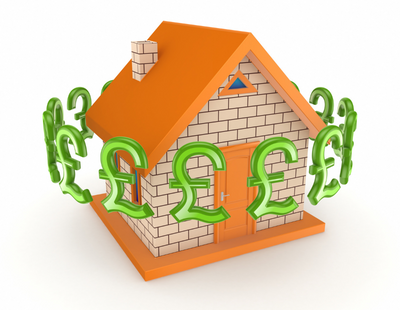A leading agent has claimed that the economic plans of Liz Truss, the frontrunner to be the country’s next Prime Minister, have the potential to be apocalyptic for the housing market.
Reacting to the latest Nationwide House Price Index, which found that annual UK house price growth increased slightly in July to 11% (up from 10.7% in June), Simon Gerrard, managing director of Martyn Gerrard Estate Agents and Abbeytown Ltd, said: “These figures reflect a very scary time for buyers with so few properties coming to the market and mortgage rates seemingly going up by the day.”
“However, if Liz Truss’ economic plan leads to interest rates rising to the region of 7%, as has been widely predicted, the housing market would likely face an almost apocalyptic, once-in-a-generation crash.”
He added: “Today, it is those looking to sell mid-range three-ish bedroom properties who are benefitting the most from the chronic under-supply of homes, with countless examples of multiple offers well above asking price. But this cannot continue, and it is incredible that the housing supply crisis isn’t further up the agendas of both prime ministerial candidates.”
Gerrard concluded: “While it may not be an immediate vote winner, the reform of our antiquated planning regulation would get Britain building the new homes we so desperately need.”
Commenting on the figures from the latest Nationwide HPI, Robert Gardner, the building society’s Chief Economist, said: “July saw a modest increase in the rate of annual house price growth to 11.0%, from 10.7% in June. Prices rose by 0.1% month-on-month, after taking account of seasonal effects – the twelfth successive monthly increase, which kept annual price growth in double digits for the ninth month in a row.”
He said the housing market has retained a ‘surprising degree of momentum’ given the mounting pressures on household budgets from high inflation, which has already driven consumer confidence to all-time lows.
Gardner added that, while there are tentative signs of a slowdown in activity, with a dip in the number of mortgage approvals for house purchases in June, this has yet to feed through to price growth.
“Demand continues to be supported by strong labour market conditions, where the unemployment rate remains near 50-year lows and with the number of job vacancies close to record highs,” he continued.
“At the same time, the limited stock of homes on the market has helped keep upward pressure on house prices.”
However, Gardner said the high-street lender continues to expect the market to slow as pressure on household budgets intensifies in the coming quarters, with inflation set to reach double digits towards the end of the year.
“Moreover, the Bank of England is widely expected to raise interest rates further, which will also exert a cooling impact on the market if this feeds through to mortgage rates,” he said.
Iain McKenzie, CEO of The Guild of Property Professionals, said of the latest findings: “While house prices continue to defy gravity, the monthly growth figures are starting to level out. Demand for properties has dramatically outweighed supply since 2020 and that has pushed prices to record levels."
He added: “Over the past month the number of buyer enquiries has started to subside, and we are seeing a more balanced sales market that could mean we will see house price growth cool."
“It is unlikely we will see a drop in prices anytime soon. Around half of buyers move because their living situation changes and they are compelled to move to a new property - and so long as this demand remains buoyant, so too will house prices.”




/LizTruss01-400x310.png)


/Conservative-logo400x310.png)





.png)


.png)




Join the conversation
Jump to latest comment and add your reply
She sound just like a labour politician.
Please login to comment